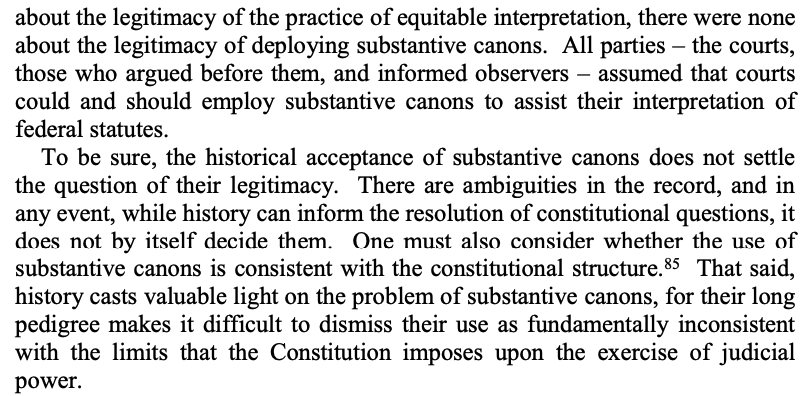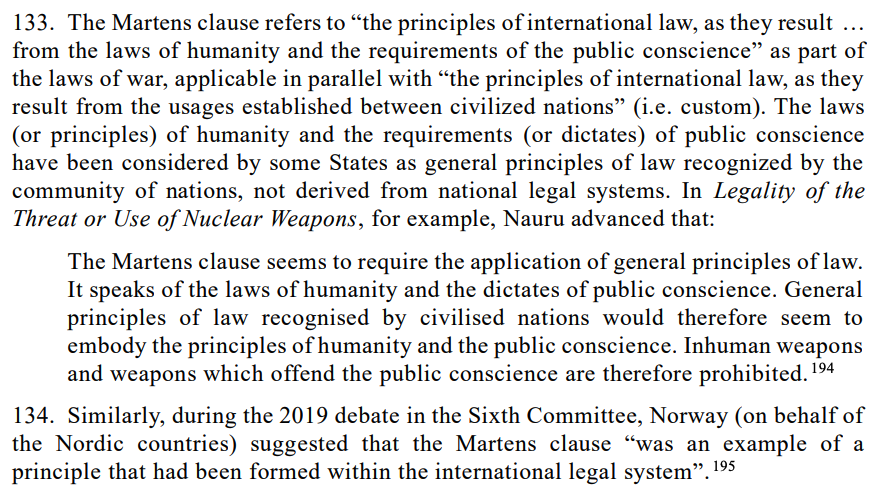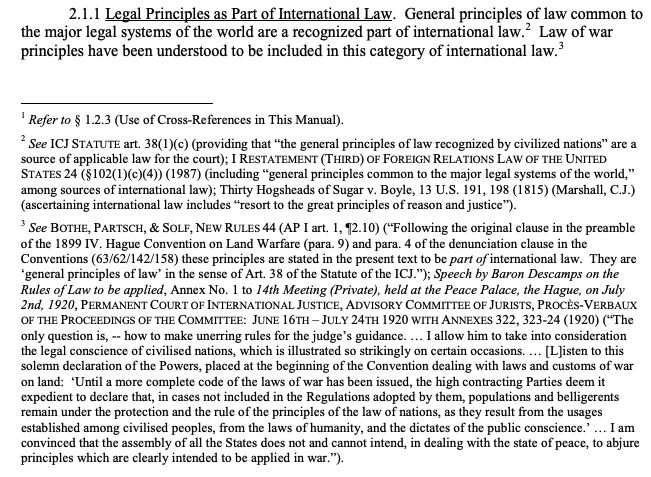
1. Interestingly, Barrett probably agrees. In 2010, Barrett accepted that statutory textualism was not dictated by original meaning/understanding or historical practice.
scholarship.law.nd.edu/cgi/viewconten…



scholarship.law.nd.edu/cgi/viewconten…
https://twitter.com/CBHessick/status/1315635067163684865




2. At that time, Barrett argued that courts are "faithful agents" of the legislature, and textualism best preserves legislative compromises. Later, her view changed. 



3. In 2017, Barrett argued that courts are faithful agents of the people, and that fairness to the people requires interpreting statutes according to their public meaning.
lawreview.uchicago.edu/sites/lawrevie…
lawreview.uchicago.edu/sites/lawrevie…

4. In both cases, Barrett justified textualism on normative grounds, based on a conception of what law and courts are for, and what role they should play in a society like ours.
5. In other words, Barrett is not a textualist because she's an originalist.
She's a textualist because she's a natural lawyer.
Thank you for coming to my jurisprudence talk. Surprise!
She's a textualist because she's a natural lawyer.
Thank you for coming to my jurisprudence talk. Surprise!
• • •
Missing some Tweet in this thread? You can try to
force a refresh






